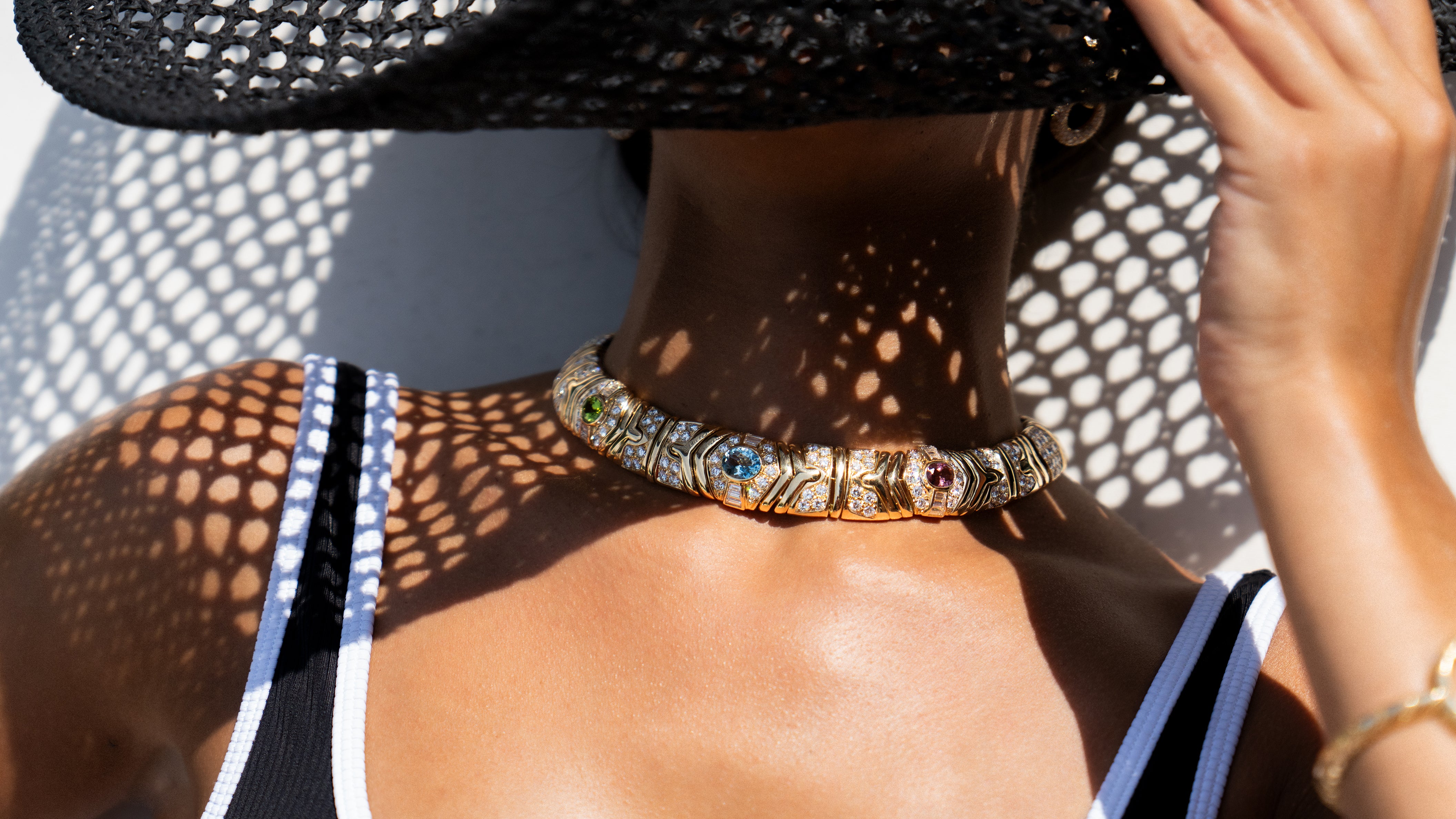Art Nouveau Jewelry: 1880-1910
The “New Art” movement was an antidote to the staid, conservative styles produced during Victoria’s reign. The name “Art Nouveau” had French origins, but the same aesthetic was emerging in other countries under other names – such as Jungenstil in Germany and Austria. Edwardian jewelry was the British take on the Art Nouveau look.
Defining Art Nouveau Style
Art Nouveau encompassed art, architecture, music, literature, fashion and jewelry. Even architecture was part of the movement, as is evident to this day in ironwork that can still be seen at the entrance to each Parisian Metro Station.
Jewelry from this period introduced sinuous curves, breathtaking designs – and the feminine form. The latter scandalized a number of the righteous denizens of society, who refused to wear such risqué jewels. The inclusion of these fantasy women in jewelry has been professed as either a backlash to the women’s movement or as a liberating theme for the female populace. Whatever the original intent may have been, the Art Nouveau period produced some genuinely breathtaking and innovative designs.

Art Nouveau Materials
Unlike jewelry created in past eras, Art Nouveau pieces were all about the design rather than the materials used to produce them.
Enamelwork figured mostly in the creation of these jewels. Plique-à-jour, a technique whereby enamel was poured into a frame without a backing, created a stunning effect, much like a stained glass window. The enamels used included soft shades, contributing to the natural feel of Art Nouveau pieces.

Delicate goldwork showcased pearls, moonstone, opal, glass, ivory, shell, amber and horn. Galalith, a synthetic plastic material, made its debut during this time. Diamonds and other precious gemstones, were used sparingly, and took a back seat to the creative settings developed for these pieces.
While employing minimal settings, gossamer-thin materials and intricate designs, Art Nouveau pieces were nonetheless made to be worn. Each was unique and fashioned with the highest level of craftsmanship. Even the most substantial pieces were beautifully finished to ensure they sat well on the neck, wrist or bodice.
Art Nouveau Motifs
Sinuous curves and natural themes dominated Art Nouveau era jewelry. Female figures with long, lustrous hair took the form of butterflies and such mythical creatures as faeries, nymphs and mermaids. Peacocks, as well as exotic flowers, including irises and orchids, were very popular. Egyptian motifs, a carryover from previous eras, maintained their popularity, in the form of scarabs, cobras and papyrus.
Darwin’s Origin of the Species is credited with the realism infused in the anatomical and botanical details of the artisans’ designs.
Many of the themes were derived from Chinese and Japanese art, including insects, elaborate flora and landscapes, as well as dragons. Japan’s influence could also be found in several of the metalworking designs.

Artists were fascinated by the juxtaposition of the beautiful and grotesque elements found in nature. Bats and insects, not customarily considered popular themes, were made beautiful with sinuous curves and the addition of colorful gems.
Leaders in Art Nouveau Jewels
René Lalique, Georges Fouquet and Henri Vever were three of the pioneers of the Art Nouveau movement. Louis Comfort Tiffany also became a household name during this period. They experimented with materials and techniques, viewing their creations as an art form, using color, shapes and motifs that formed a palette that would be the envy of any painter.
Other jewelry designers worth mentioning include Lucien Gaillard, Paulding Farnham, Philippe Wolfers, Henrie-August Solié and Henri Dubret.
Learn More About Louis Comfort Tiffany
Learn More About Georges Fouquet

Art Nouveau Clientele
Vivacious, daring and unique – as well as being pricey – these jewels did not appeal to the masses. Instead, they were embraced by the well-to-do who had an eye for the arts. One notable client was Sarah Bernhardt, who had pieces designed in aluminum so she could comfortably wear her jewels on stage. Her patronage helped to assure the enduring reputation of René Lalique.
While Art Nouveau jewelry appealed primarily to wealthy clientele, mass-produced items such as brooches, charms, buttons, stick pins and cufflinks, inspired by the form, appeared as mainstream fashions.
The demand for Art Nouveau jewelry began to wane in the years leading up to the Great War. The light and lovely themes that defined an era were doomed to obscurity, and would not enjoy a revival until the 1960s. Today, Art Nouveau jewels enjoy a reputation as timeless, beautiful, romantic works of art.
Browse Our Selection of Art Nouveau Jewelry
Learn How to Care for Period Jewelry
Lean How to Store Your Precious Jewelry


